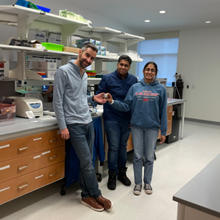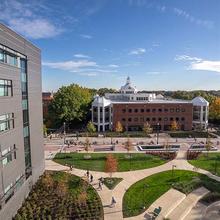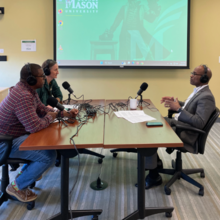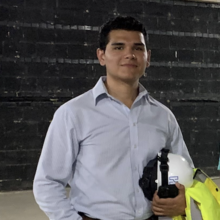College of Engineering and Computing News
- February 2, 2024William Rosenberger, distinguished university professor in Mason's Statistics Department, has been named the 41st Fisher Memorial Lecturer.
- January 31, 2024Dominion Energy Faculty Fellow in Power and Energy Engineering seeks to bring cutting-edge research and sustainable practices into the curriculum and inspire students to excel technically and learn about their role in mitigating climate change through responsible and innovative engineering practices.
- January 30, 2024CEC's Chris Carr is taking his expertise to the Environmental Protection Agency for a two-year appointment, launching the agency's Office of Inclusive Excellence.
- January 25, 2024A Mason team including a high school student, a postdoctoral scholar, and a mechanical engineering professor has developed a way to use spent coffee grounds to remove diverse contaminants from water.
- January 24, 2024New Department of Bioengineering chair shares his thoughts on the department, his vision, and his goals.
- January 23, 2024Mason scientists and partners will leverage their climate expertise and the university’s resources into broader societal implications, thanks to a $6 million grant from the National Science Foundation (NSF).
- January 22, 2024Mason engineering professor Kuo Tian is monitoring landfills to make sure our trash doesn't contaminate drinking water.
- January 17, 2024With the opening of the Nanofabrication Facility on its Science and Technology Campus, Mason stands ready to conduct state-of-the-art research and to help train the next generation of innovators.
- January 9, 2024Mason researcher Marissa Howard leads a team of scientists who have discovered a way to “eavesdrop” on cellular communications that could revolutionize treatments for cancer and other maladies.
- January 8, 2024Every year, the American Society of Civil Engineers (ASCE) allows its college chapters to participate in competitions that showcase the engineering knowledge and finesse of civil engineering students across the country. Two Mason ASCE teams—Team Surveying and Team Sustainable Solutions—participated and won in the annual competition.
- January 8, 2024Each episode of “The Mason Mechanical Engineer” podcast features an interview with a member of the Mason nation, including staff, faculty, students, alumni, and industry partners. Mechanical engineering chair and professor Leigh McCue co-hosts with Philip Wilkerson, an employer engagement consultant in University Career Services.
- January 2, 2024A Mason civil engineering student has already landed a job upon graduation…and his first assignment will be Project Engineer for a major new building on the Fairfax campus.












